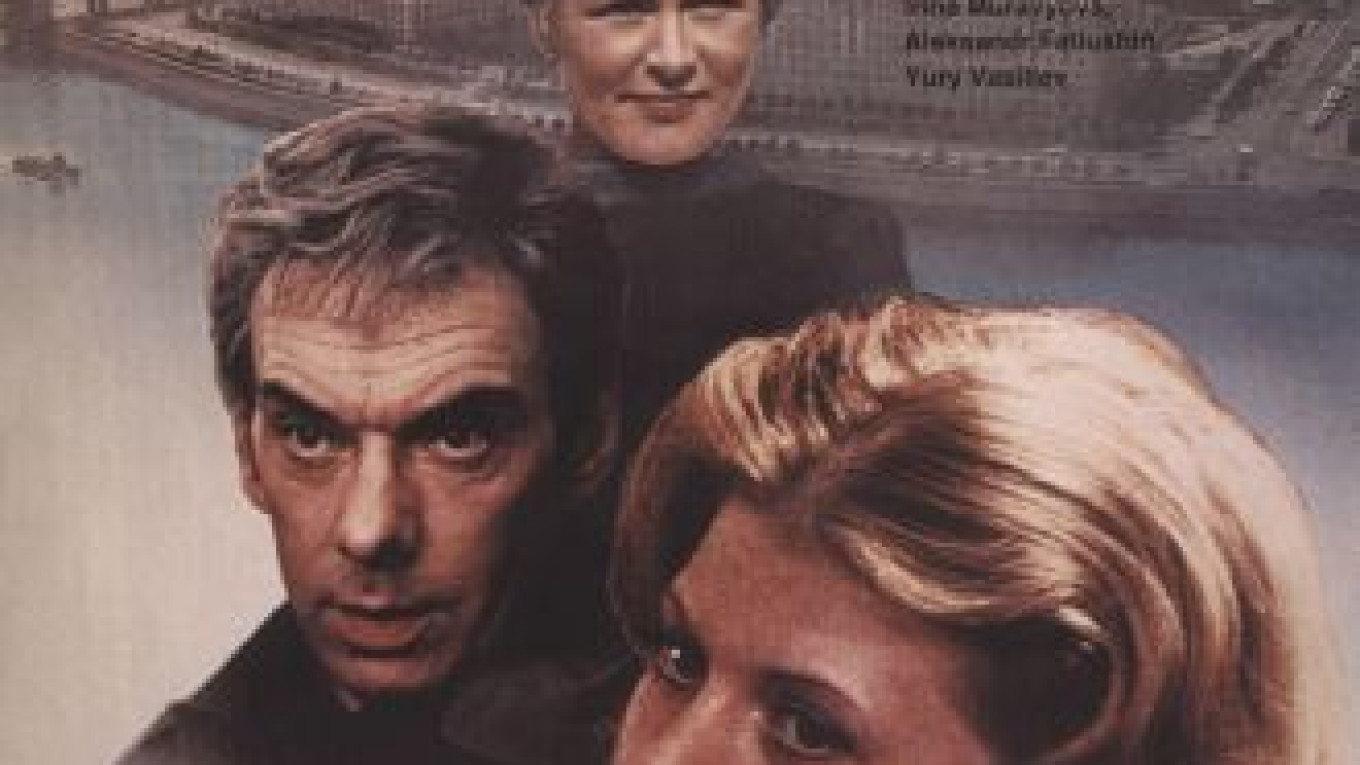Mosfilm, the leading state-owned film studio, has launched an online service that will eventually offer 2,500 old and new movies. Thirty films with English subtitles will go up on the site in the next few weeks as the movie studio hopes to attract an international audience.
“We never sold out film rights to anyone, and now we can offer all our movies in a new media to new generations,” said Mosfilm’s international affairs and projects coordinator, Sergei Simagin.
“War and Peace,” “Walking in the Streets of Moscow,” “Incredible Adventures of Italians in Russia” and “Ivan Vasilyevich Changes Occupation” are among the classic films that will go up with English subtitles.
The service is accessible at www.cinema.mosfilm.ru, with the current catalogue featuring 142 movies ready to be viewed and downloaded. Another 150 films will be available by July with the rest to follow.
Created in 1920 through the nationalization of two private film studios, Mosfilm is the oldest film company in Europe. It played host to some of the biggest Russian and Soviet-era film directors such as Andrei Tarkovsky. His internationally acclaimed “Ivan’s Childhood” is already available for download.
Movies available on the studio’s web site can be accessed for free on a daily timetable, similar to that at a movie theater, or can be watched online at one’s discretion for 25 rubles (90 cents). Users can also download movies to keep forever for 65 rubles ($2.20) apiece.
Mosfilm say they are trying to stay ahead of the pirates by keeping prices “lower than those of street vendors with the quality much better.”
Illegal sharing of video content over the Internet has become the entertainment industry’s global nightmare. Today YouTube plays host to scores of illegal uploads of films such as “Schindler’s List,” “E.T.” and the “Rambo” trilogy, among hundreds of others. Members of Russia’s Facebook counterpart, Vkontakte, are able to view thousands of pirated copies of domestic and foreign movies translated into Russian or in their original languages.
While some studios have tried to combat file sharing through the courts, others such as Mosfilm and America’s Hulu — mutually owned by the ABC, NBC and FOX television networks — have chosen to embrace the Internet revolution by putting their content, with high-quality video and audio, online for free or minimal fees.
Until recently, Hulu, which streams all shows and movies from the three major networks with additional material coming from smaller cable channels, has been doing so free of charge. But the online service plans to charge $9.99 for premium content more than five weeks old.
Internationally respected directors Ken Loach and Yann Arthus Bertrand recently decided to put their films online. Loach uploaded his whole body of works onto YouTube while Bertrand’s documentary about Earth, titled “Home,” has been available on the site since its release in 2009.
Unlike Hulu, which is currently available only in the United States and the United Kingdom, Mosfilm is aiming for bigger global audiences. In the past, many of Russia’s most powerful films did not make it to Western screens because of a lack of subtitles and poor international distribution.
“Mosfilm has a lot of showings abroad. We saw that we have a lot of foreign interest in our films, and we want to make them accessible to as many people as possible,” Simagin said.
The site already features an English version. It also has plans to upload movie versions with subtitles in French, German, Spanish, Arabic and Japanese as well as in English.
Mosfilm’s existence through most of last century’s historic events may prove to be the studio’s biggest attribute. After the Soviet victory over Nazi Germany in World War II, Mosfilm captured the people’s sacrifice and patriotism in many films dedicated to the era.
Some of the biggest and most memorable movies about the Great Patriotic War, such as “6 O’Clock After the War” (1944) and “The Ballad of a Soldier” (1959) can be viewed on the site right now.
Nostalgic Russians at home and abroad, along with international viewers wanting to see Moscow before it was decorated in advertising billboards and neon lights, can revisit what the city was through classical films featuring the country’s capital, such as “I Walk Around Moscow” (1963) featuring a young Nikita Mikhalkov.
Other classic films featuring Moscow already available on Mosfilm’s site are the Academy Award-winning “Moscow Doesn’t Believe in Tears” (1979) and “Pokrovskiye Gates” (1980).
The studio’s most recent feature films such as last year’s “Ward No. 6” and “Vanished Empire” (2008) can be seen today, and new releases will be uploaded once their cinematic runs are over. If the site proves to be a success, Mosfilm may expand its catalogue to include Western films as well.
There are no silent films on the site at the moment, although Sergei Eisenstein’s “Battleship Potemkin” will go up in July and others will follow.
A Message from The Moscow Times:
Dear readers,
We are facing unprecedented challenges. Russia's Prosecutor General's Office has designated The Moscow Times as an "undesirable" organization, criminalizing our work and putting our staff at risk of prosecution. This follows our earlier unjust labeling as a "foreign agent."
These actions are direct attempts to silence independent journalism in Russia. The authorities claim our work "discredits the decisions of the Russian leadership." We see things differently: we strive to provide accurate, unbiased reporting on Russia.
We, the journalists of The Moscow Times, refuse to be silenced. But to continue our work, we need your help.
Your support, no matter how small, makes a world of difference. If you can, please support us monthly starting from just $2. It's quick to set up, and every contribution makes a significant impact.
By supporting The Moscow Times, you're defending open, independent journalism in the face of repression. Thank you for standing with us.
Remind me later.


